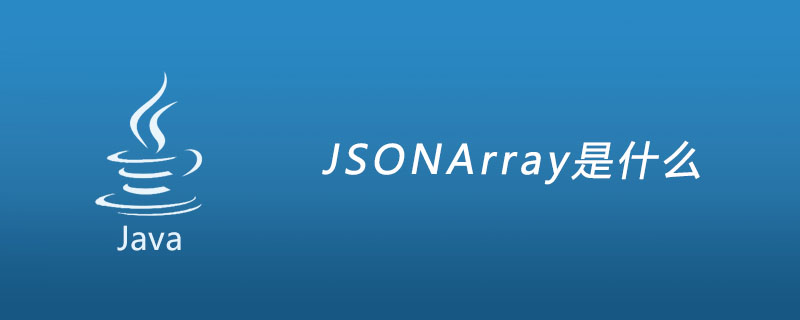Home >Java >javaTutorial >What is JSONArray
JSONArray is an ordered sequence of values, its outer text form is a string enclosed in square brackets with commas separating values, and its inner form is an object with indexes "get" and "opt" "element" methods for accessing values by index, and methods for adding or replacing values.

JSONArray is an ordered sequence of values. Its outer text form is a string enclosed in square brackets with commas separating values. The inner form is an object with an index get and opt element methods for accessing values by index, and methods for adding or replacing values. Its value can be of any of these types: Boolean, JSONArray, JSONObject, Number, String, or JSONNull object.
So JSONArray is ["tom", "kate", "jerry"]; or [1,2,3]
At the same time, the array json here can be turned into an array object json by adding the object json :
[{"name":"tom"},{"name":"kate"}]
The constructor can convert JSON text into a Java object. The toString method converts to JSON text.
A get method returns a value if it can be found, and throws an exception if it cannot be found. An opt method returns a default value rather than throwing an exception, so is useful for obtaining optional values.
The generic get() and opt() methods return an object that can be converted or queried. There are also type get and opt methods that do type checking and input coordination for you.
toString method The generated text strictly follows JSON syntax rules.
Constructors are more forgiving in the text they accept:
An extra, (comma) may appear before the closing bracket.
null When , (comma) is omitted, the value will be inserted.
String' can be quoted (single quotes).
Not required at all if the strings do not start with quotes or single quotes, and if they do not contain leading or trailing spaces, and they do not contain any of these characters { } [ ] / \ : , = ; # Quote them: if they don't look like numbers, if they are not reserved words true, false or null.
Values can be separated by ; (semicolon) and, (comma).
Numbers can have a 0- (octal) or 0x- (hex) prefix.
Comments written using slash, slash and hash conventions will be ignored.
Implementation
Simplified user class:
package com.sshmobai;
import java.util.Date;
public class User {
private String username;
private String password;
private Date createdTime;
public User(){super();}
public User(String username, String password) {
super();
this.username = username;
this.password = password;
}
public User(String username, String password, Date createdTime) {
super();
this.username = username;
this.password = password;
this.createdTime = createdTime;
}
public String getUsername() {
return username;
}
public void setUsername(String username) {
this.username = username;
}
public String getPassword() {
return password;
}
public void setPassword(String password) {
this.password = password;
}
public Date getCreatedTime() {
return createdTime;
}
public void setCreatedTime(Date createdTime) {
this.createdTime = createdTime;
}
@Override
public String toString() {
return "User [username=" + username + ", password=" + password + ", createdTime=" + createdTime + "]";
}
}
Test
User user = new User("ssh", "mobai", new Date());
System.out.println(user);
System.out.println(JSONObject.fromObject(user).toString());
Result
User [username=ssh, password=mobai, createdTime=Mon Jul 30 16:30:41 CST 2018]
{"createdTime":{"date":30,"day":1,"hours":16,"minutes":30,"month":6,"seconds":41,"time":1532939441331,"timezoneOffset":-480,"year":118},"password":"mobai","username":"ssh"}The above is the detailed content of What is JSONArray. For more information, please follow other related articles on the PHP Chinese website!